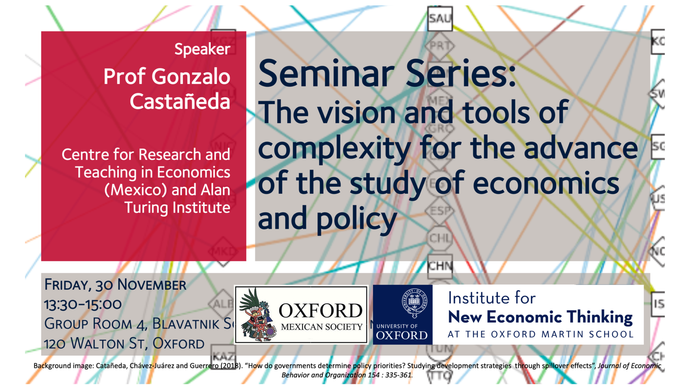I will present the benefits of incorporating the vision and tools of complexity science for knowledge advancement in economics. From a theoretical perspective, these benefits relate to the introduction of more realistic assumptions in our models, some with respect to agents’ behavior and others with regard to the socioeconomic setting where they are embedded. From an empirical point of view, computational models enable simulations that are grounded on experimental/behavioral evidence, while the economy’s structure can be empirically calibrated through network tools and agent-based models (AMB). Then, I will demonstrate such benefits by showing how the Mexican Atlas of Economic Complexity is used to advise national and regional development policies. Finally, I will briefly comment on my forthcoming textbook on complexity economics.

